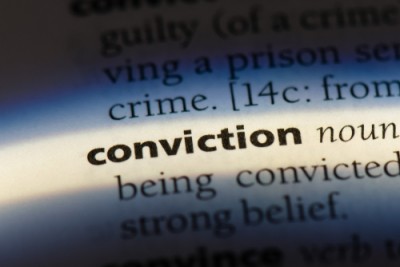Lawyer's convictions upheld for role in schemes to con law firms and users of dating websites

Image from Shutterstock.com.
A federal appeals court has upheld a Texas lawyer’s conspiracy convictions for his role in schemes to con law firms, job seekers and users of dating websites.
The 11th U.S. Circuit Court of Appeals at Atlanta upheld on Friday the October 2016 convictions of Little River, Texas, lawyer Perry Cortese and co-defendant Priscilla Ann Ellis of Killeen, Texas, Law360 reports.
Both were convicted of conspiracy to commit mail and wire fraud and conspiracy to launder money.
The intended loss in the schemes was about $15 million, a trial judge had found. The intended loss included about $9.2 million in fraudulently obtained funds that were deposited into conspirators’ bank accounts and about $5.8 million in counterfeit checks received by victims but not cashed.
The conspiracy, which included other members, duped victims into depositing phony cashier’s checks and then wiring the proceeds to bank accounts controlled by the conspirators, according to the 11th Circuit’s unpublished decision.
Sometimes the conspirators emailed law firms or title companies to seek help resolving business disputes or real-estate closings. Sometimes they sent emails offering work-at-home opportunities. Sometimes they used dating services to trick women into perceived relationships and gain access to their bank accounts. Sometimes the conspirators simply hacked a victim’s email account and used personal information to conduct wire transfers.
Ellis was accused of printing counterfeit checks used in the conspiracy, recruiting people to open bank accounts used by the conspirators, and instructing others where funds should be directed.
Cortese’s role “was somewhat more limited,” the appeals court said. He worked to “unfreeze” bank accounts that were locked for suspicious transactions, used his law firm trust account to hold funds obtained in scams, and recruited a paralegal to open bank accounts for the conspiracy. Cortese also flew to Utah to collect cash from a woman ensnared in an online-romance scam.
Cortese and Ellis were tried in Florida because a co-conspirator who became a government witness committed illegal acts in Tampa, Florida. Cortese was sentenced to 25 years in prison, and Ellis was sentenced to 40 years in prison.
Ellis was also sentenced to 65 years in prison in a separate case in which she was accused of conspiring to print counterfeit checks in prison so she could hire a hit man to kill witnesses in the wire fraud case.
The 11th Circuit said the government presented “overwhelming evidence” against Ellis on the mail and wire fraud conspiracy counts. In addition, the appeals court found, the evidence against Cortese was “plainly sufficient to support the jury’s verdict” on those counts, even if he didn’t know all the members of the conspiracy and didn’t profit as much as other conspirators.
The appeals court also disagreed with claims by Ellis and Cortese that they did not knowingly participate in the money laundering conspiracy.
The court also upheld the sentences, including an enhancement used in calculating Cortese’s sentence for using his special skill as a lawyer in the scheme.
“The record before the district court was sufficient to support the conclusion that Cortese acted as an attorney when advising victims whose accounts had been frozen and when negotiating with the banks to reopen the accounts,” the appeals court said. “His status as an attorney and his assurances helped lull the victims into believing that nothing was amiss, which helped conceal the fraud for as long as possible.”



